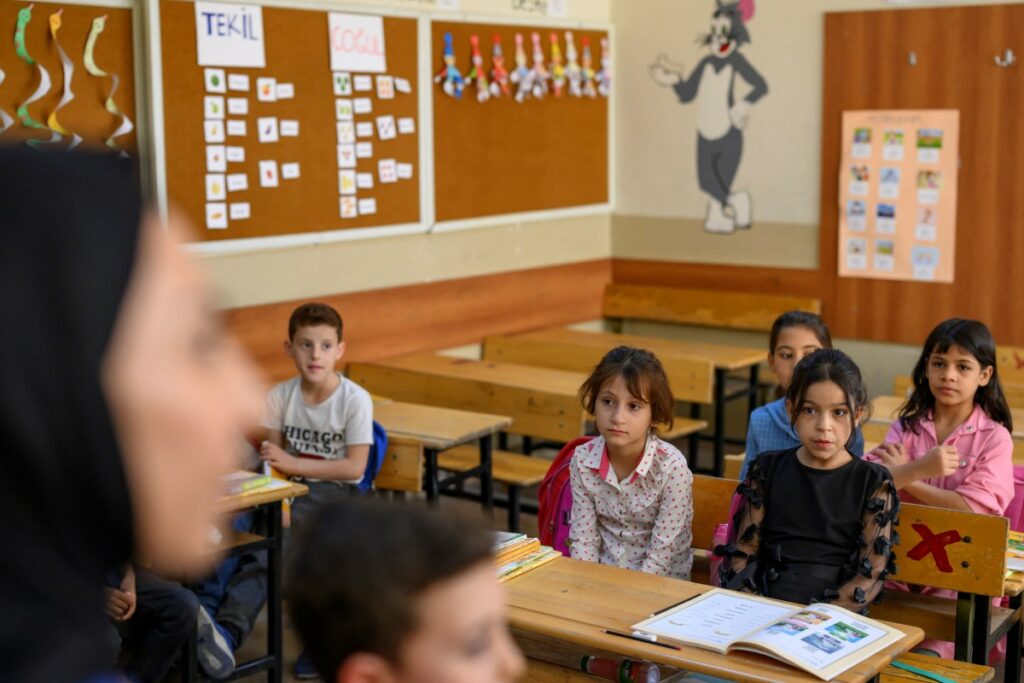Although the European Union has allocated €6 billion for refugee aid in Turkey, the latest findings of the European Court of Auditors (ECA) show that these funds have not achieved the expected impact and sustainability.
The report points to significant delays and inefficiencies in the implementation of projects to support over 4 million registered refugees, including 3.2 million Syrians, many of whom are trying to reach Europe.
The Facility for Refugees in Turkey (FRIT), established in 2015, was designed to streamline EU humanitarian and development aid in response to the growing refugee crisis within Turkey’s borders. The initiative aimed to support both the refugee population and their host communities. However, the effectiveness of the facility was hampered by a number of challenges.
The €6 billion allocation was divided equally into two tranches, covering the periods 2016-2017 and 2018-2019, to fund a wide range of activities from health and education to social and economic support.
Critically, the audit found that a significant proportion of the expenditures did not fully achieve the intended results. Around €2.44 billion, or 40.8 percent, was spent on humanitarian aid and around €3.54 billion or 59.1 percent went to development aid.
The largest single expenditure was on basic needs, which accounted for €1.89 billion, or almost a third of total funds. This was followed by education and socio-economic support with expenditures of € 1 billion and € 907.1 million, respectively.
Despite these enormous sums, the Court of Auditors criticized the general management and monitoring of these projects. The main problems included significant delays in project implementation and a failure to systematically assess whether the costs incurred were reasonable.
These shortcomings have raised doubts about the effectiveness of the expenditure and its ability to bring lasting benefits to the refugee and host communities.
To make matters worse, the Turkish Ministry of Education refused to reimburse expenses deemed inappropriate. This situation arose amid general criticism that the ministry has failed to provide the necessary data, complicating efforts to evaluate the success of education programs funded through FRIT.
In addition, the court’s report pointed out that the EU Commission has not effectively measured the impact of the projects, particularly in the socio-economic area, which is crucial for the integration of refugees into the Turkish economy. The lack of a sound impact assessment undermines the overall objective of the aid, which is to facilitate the long-term integration and self-sufficiency of the refugees.
The report also points to the deteriorating political and legal environment in Turkey, particularly in relation to the activities of nongovernmental organizations (NGOs) and respect for fundamental rights and the rule of law. These factors have negatively impacted the effectiveness of EU-funded initiatives and made cooperation between the EU and Turkish authorities more difficult.
Bettina Jakobsen, a member of the European Court of Auditors who led the audit, raised concerns about the economic efficiency of the projects funded.
“The EU Facility for Refugees in Turkey has provided important support to refugees and host communities in a difficult political context,” Jakobsen said. “But the value for money and impact could be better, and it is far from certain what will happen to the projects in Turkey when EU aid dries up.”
The audit, which followed up on previous recommendations from 2018, recognized some improvements, such as improved cash assistance projects that saved around 65 million euros. Despite this progress, the report criticizes the EU Commission for failing to consistently assess the reasonableness of project costs, an omission that casts doubt on the efficiency of the projects.
Significant investments were made to alleviate the pressure on Turkey’s health, education and municipal infrastructure due to the influx of refugees. However, projects have experienced significant delays due to strict building regulations, the COVID-19 pandemic and rising inflation. In addition, devastating earthquakes in 2023 exacerbated these challenges, although the EU Commission responded immediately to assess and manage the impact.
The report also identified shortcomings in monitoring, in particular the lack of follow-up on whether refugees have found employment or successfully started a business after participating in EU-funded programs.
Looking ahead, the sustainability of these interventions remains crucial, with the EU focusing on handing over project management to the Turkish authorities. However, this handover faces obstacles, mainly due to the limited political will of the national authorities, which undermines efforts to improve the operational environment for international NGOs.
Turkey and the EU signed a “statement of cooperation” in 2016 that stipulated Turkey would take measures to stop irregular migrants from traveling to the Greek islands from its shores; that all new irregular migrants and asylum seekers arriving from Turkey to the Greek islands and whose applications for asylum were declared inadmissible be returned to Turkey; and that for every Syrian returned from the islands, EU Member states would accept one refugee who had waited inside Turkey. In exchange, Turkey would receive €6 billion to improve the humanitarian situation faced by refugees in the country, and Turkish nationals would be granted visa-free travel to Europe.
Despite the deal, Turkish President Tayyip Erdoğan has repeatedly criticized EU officials for failing to provide Turkey with sufficient support to ease the country’s huge refugee population.
EU leaders, on the other hand, have accused Erdoğan of using migrants as bargaining chips by pushing them towards the Greek border.

